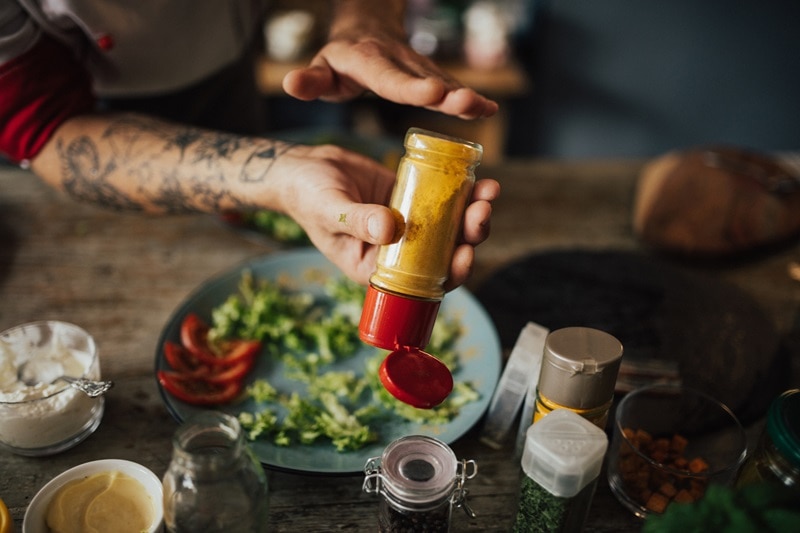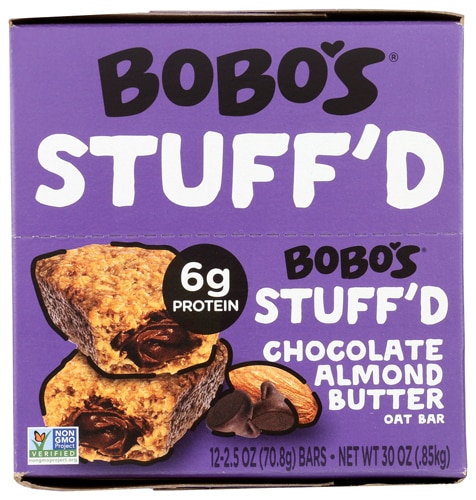[vc_row][vc_column][vc_column_text]When shopping for nutritious foods, you may be more drawn to products advertised as using natural flavors over artificial ones. Many people assume that natural flavors are a healthier choice than artificial flavors, since the term “natural” is often associated with “healthy.”
So, you may be surprised to learn that natural doesn’t automatically equal healthy, including when it comes to flavorings. Here we’ll break down the difference between natural and artificial flavors and tell you how to best navigate these flavors in the food system.

What is Natural Flavoring?
According to the United States Department of Agriculture (
USDA), a natural flavor is one that comes from natural sources, such as plants, herbs and spices. Natural flavors can also come from animal sources, such as meat, dairy and eggs.
However, the Food and Drug Administration (
FDA) has no formal definition of the term “natural”. This allows food manufacturers to use things like
enzymes and heat to retrieve the flavors from these foods, in order to add them to other foods. They also may add in chemicals to further develop the flavor profile they are seeking. So, natural flavors may actually contain artificial ingredients. In fact, according to the Environmental Working Group (
EWG), flavors can be made up of over 100 chemical ingredients, such as solvents, emulsifiers and preservatives.
Thus, the term “natural flavors” can be a bit misleading. Yet
research has reported they are the fourth most common ingredient listed in food labels, and they can be found in many different types of packaged foods and beverages. You have likely seen natural flavors being advertised on the front of packaging.
What Are Artificial Flavors?
Unlike natural flavors, artificial flavors don’t come from natural ingredients. Rather, they are made in a laboratory using chemicals and other ingredients to create the desired flavor. The completed flavor can then be added to various foods and beverages.
Thanks to artificial flavors, you can buy foods labeled as “strawberry” without there actually being any real strawberry in the ingredients. This is because the food is
artificially flavored with a strawberry-like flavor, which is designed to match the flavor of real strawberries. The
FDA does require artificial flavors to be listed on an ingredients list, which allows consumers to be able to quickly identify them.
Examples of foods that may contain either natural or artificial flavors include:
- Desserts like ice cream, cookies and candy
- Snack foods like crackers, chips and snack bars
- Beverages like coffee, juice and soda
- Dairy products like yogurt and some cheeses
- Breakfast cereals, including granola
- Vegan meat or other animal substitutes
- Packaged and convenience foods, like freezer meals
Are Natural Flavors Better Than Artificial Flavors?
Not necessarily. Due to the poor regulation of the term “natural” — and the other ingredients that are allowed to be added to them — natural flavors end up not being very “natural” at all. In fact, The EWG states that the
chemical composition of natural and artificial flavors may actually be the same, even though their origin was different.
Yet people are drawn to the term “natural”. One
study found that people believed that natural products contained 18% less calories than the alternative product, even though the actual calorie amount was the same.
Some studies report that added flavors of any kind may be
linked to weight gain and obesity. This is because added flavors are often added to ultra-processed foods, which are notorious for being less-healthy choices. Still, more research is needed to identify the exact health impact that natural and artificial flavors may have on humans.
In many cases, food manufacturers may use a combination of natural and artificial flavors in a product. Since the term “natural” tends to be more appealing to consumers, they are then able to advertise the food as containing natural flavors, which may help them sell more products compared to if only artificial flavors were used. Here, it unfortunately comes down to profit rather than what is actually best for the consumer.
Should You Avoid Natural and Artificial Flavors?
Due to how prevalent they are in our food system, it’s nearly impossible to completely avoid all added flavorings — whether they be natural or artificial. Thankfully, these flavorings are required to be
evaluated for safety before being approved by the FDA.
Still, it is always best to prioritize eating foods in their whole and most natural state. These foods will not have added flavors. Examples include whole sources of:
- Beans
- Fruits
- Vegetables
- Whole grains like brown rice, oats and whole wheat products
- Nuts and seeds
- Minimally processed and unflavored dairy products
- Unflavored meat, fish and poultry
- Eggs
As long as your diet consists of a majority of these types of foods, you shouldn’t need to worry too much about consuming small amounts of natural or artificial flavors.
In Summary
Contrary to popular belief, natural flavors aren’t all that different from artificial flavors. Both types of flavorings can contain chemicals that may not be good for your health, though more research is needed. Ultimately, the purpose of flavorings is simply to add flavor to the food, and not to contribute to its nutritional value. Nonetheless, it is important to focus on getting a majority of the food you eat from whole, minimally processed sources. Those foods will be the most nutrient-dense and contribute to an overall healthy and balanced diet.[/vc_column_text][/vc_column][/vc_row][vc_row][vc_column][vc_text_separator title="Featured Products" border_width="2"][vc_row_inner equal_height="yes" content_placement="middle" gap="35"][vc_column_inner width="1/3"][vc_single_image image="183179" img_size="full" alignment="center" onclick="custom_link" img_link_target="_blank" css=".vc_custom_1742333388809{padding-right: 7% !important;padding-left: 7% !important;}" link="https://www.vitacost.com/truroots-lentil-blend-organic-non-gmo-sprouted"][/vc_column_inner][vc_column_inner width="1/3"][vc_single_image image="183178" img_size="full" alignment="center" onclick="custom_link" img_link_target="_blank" css=".vc_custom_1742333399598{padding-right: 7% !important;padding-left: 7% !important;}" link="https://www.vitacost.com/somos-poblano-brown-rice-with-spinach-jalapenos"][/vc_column_inner][vc_column_inner width="1/3"][vc_single_image image="183177" img_size="full" alignment="center" onclick="custom_link" img_link_target="_blank" css=".vc_custom_1742333411807{padding-right: 7% !important;padding-left: 7% !important;}" link="https://www.vitacost.com/bobs-red-mill-kosher-whole-grain-scottish-oatmeal"][/vc_column_inner][/vc_row_inner][/vc_column][/vc_row]





